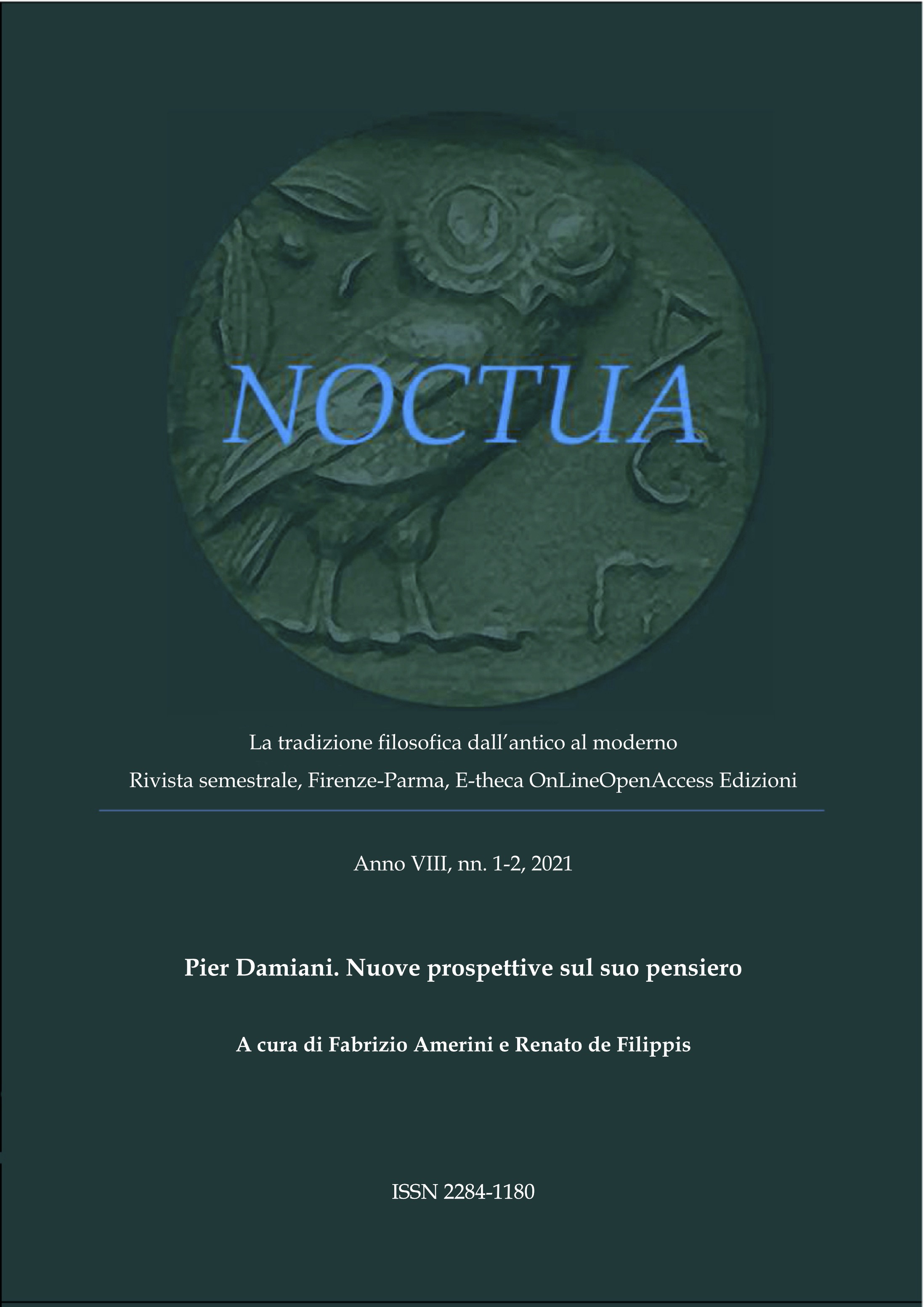La necessità della natura e la necessità dei dialettici. Un’analisi della distinzione tra necessità assoluta e necessità condizionata tra XI e XII secolo
DOI:
https://doi.org/10.14640/NoctuaVIII9Parole chiave:
Peter Damian, Anselm of Canterbury, twelfth-century logic, medieval theories of modalities, necessity, absolute vs. conditioned necessityAbstract
This essay examines the way in which the modal concept of necessity was discussed and analyzed in some eleventh- and early twelfth-century sources, such as Peter Damian’s De divina omnipotentia, Anselm of Canterbury’s Cur deus homo and several anonymous commentaries on Aristotle’s De interpretatione that were presumably composed in the first two decades of the twelfth century by logicians connected to William of Champeaux’s and Peter Abelard’s milieu. My aim is to offer a comparison of these different sources with respect to their use of the Boethian distinction between two types or kinds of necessity, namely, the “absolute” or “simple” necessity that is involved in statements like “God is necessarily immortal” or “it is necessary for humans to be animals”, and the “conditional” or “temporal” necessity that is at stake when we say, for instance, that someone necessarily walks when he is walking.
##submission.downloads##
Pubblicato
Fascicolo
Sezione
Licenza
Noctua pubblica contributi Diamond Open Access secondo i termini della licenza CC BY / Noctua publishes Diamond Open Access contributions under the terms of the CC BY license.







